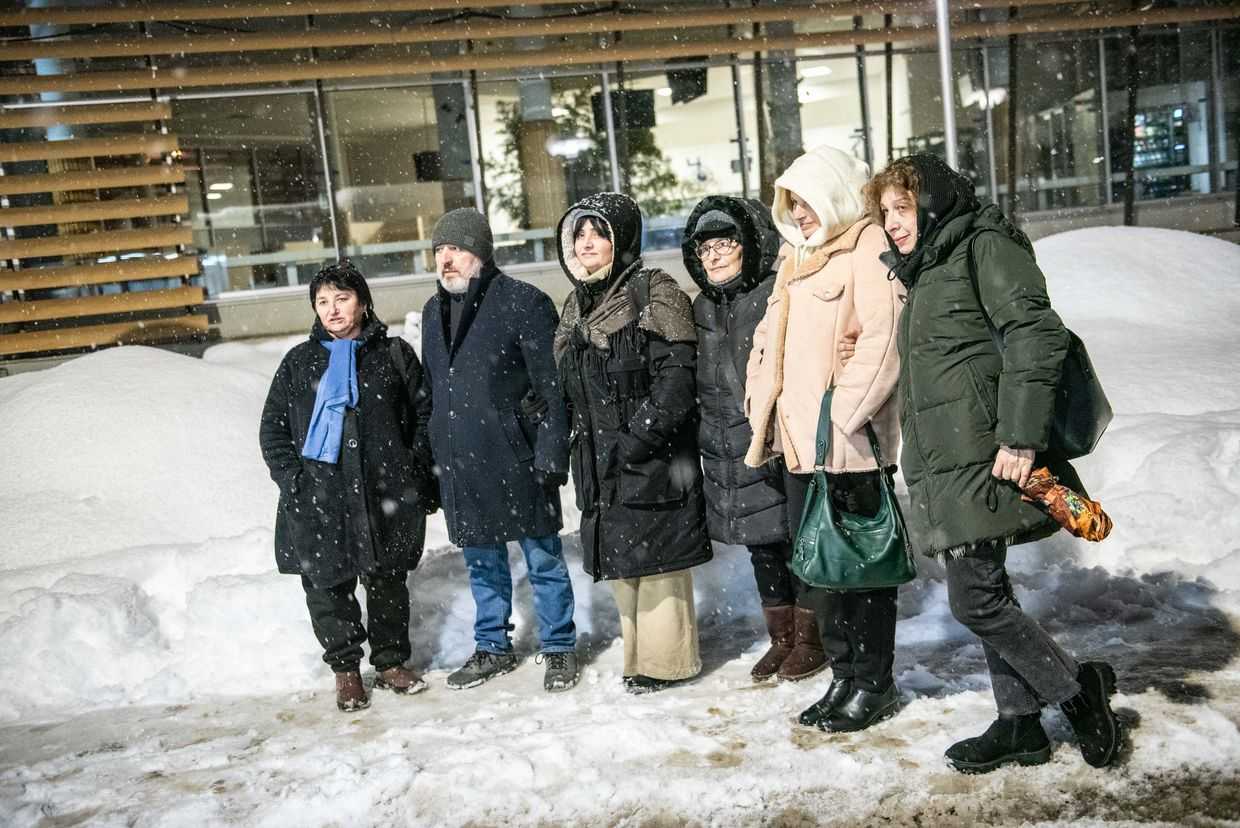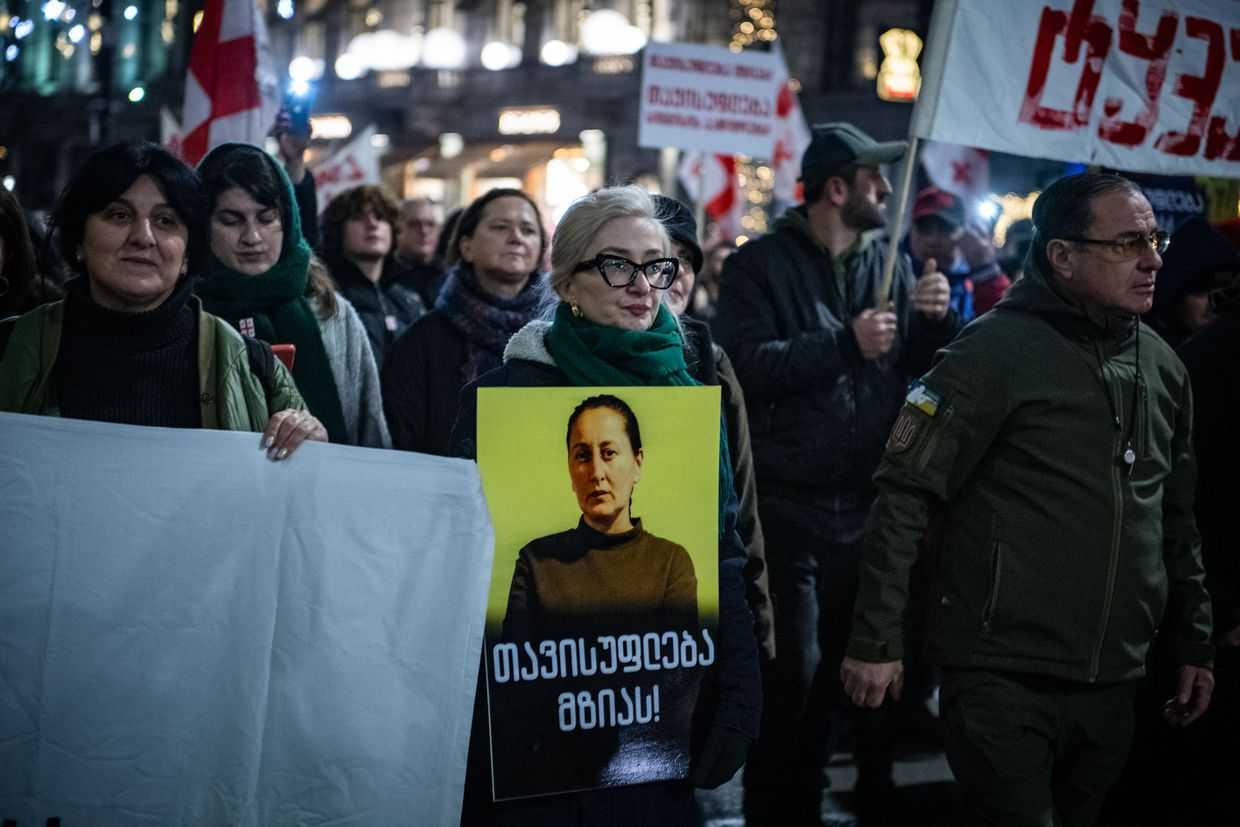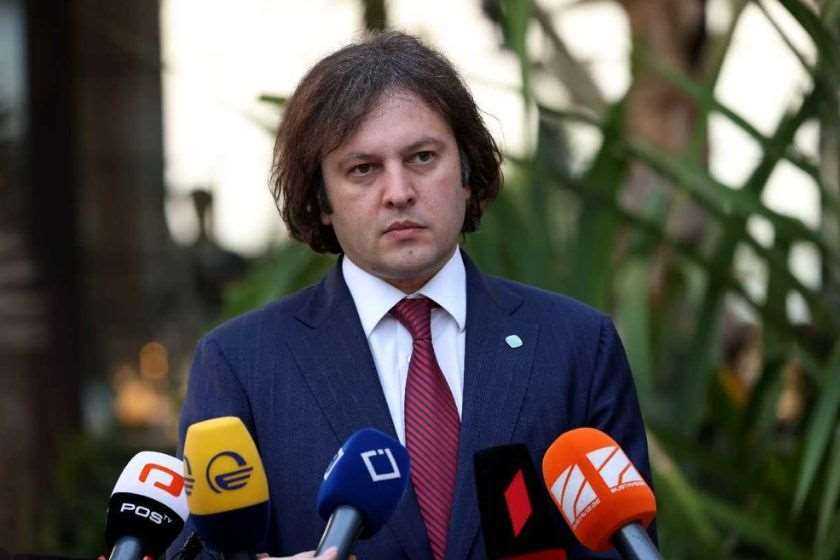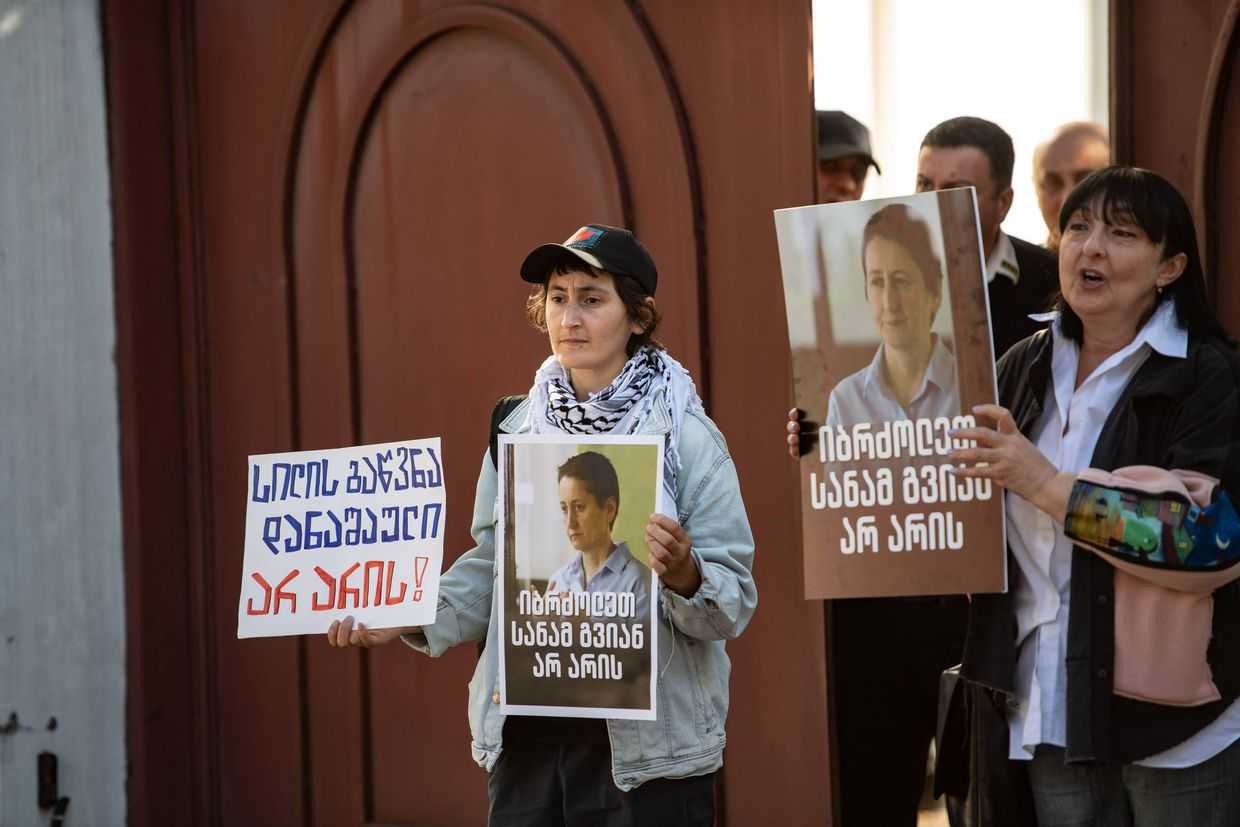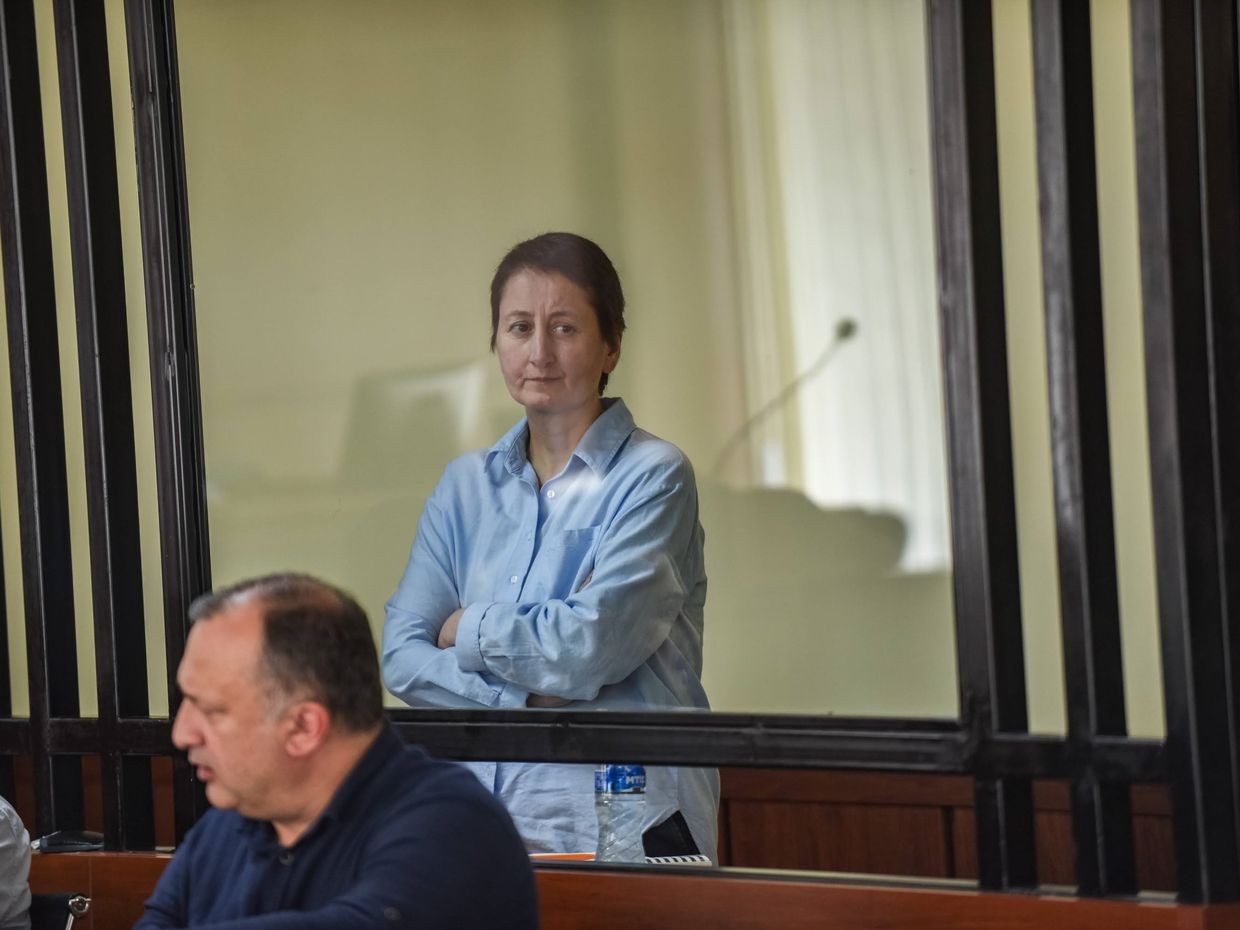
Batumi City Court has sentenced Mzia Amaghlobeli, founder of news sites Batumelebi and Netgazeti, to two years in prison for slapping the Chief of Police of Batumi during a heated exchange.
Amaghlobeli was initially charged with ‘assaulting a police officer’, which carried a maximum sentence of seven years in prison. However, in a last minute change while announcing the verdict on Wednesday, Batumi City Court downgraded the charge to ‘resisting, threatening, or using violence against a protector of public order’.
The verdict wrapped up a high-profile case widely seen by critics as part of the Georgian government’s escalating crackdown on dissent and an attempt to set an example for its opponents.
Given the time served in pre-trial detention, Amaghlobeli is due to be released in 17 months.
A convoy transporting Amaghlobeli from the court building to prison was greeted by hundreds of supporters waiting outside, who whistled and chanted her name.
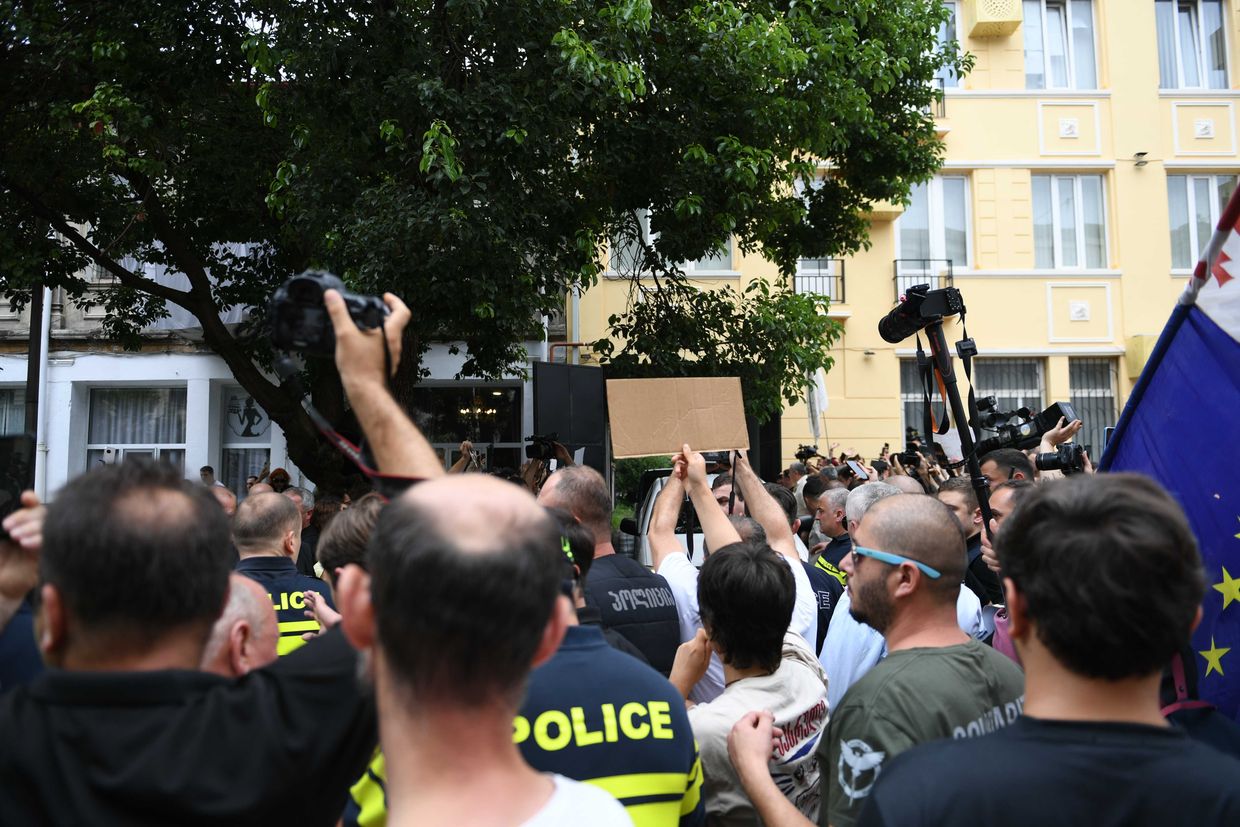
Reacting to the verdict, Amaghlobeli’s lawyer, Maia Mtsariashvili, dismissed the last minute reclassification of the charges against her client as an ‘attempt to save face’ by the government.
‘In reality, this isn't a verdict, but a demonstrative act of punishment. It makes no difference whether [the sentence] would be four years or two years. The court, and behind the court — you know who I mean — the entire government was involved in a slanderous campaign against Mzia’, she said.
Gela Mtivlishvili, a journalist and founder of Mtis Ambebi, addressed the gathered crowd outside the court and said the reclassification of the charges against Amaghlobeli changed nothing, and that they demanded she be freed.
In a joint statement just an hour after the verdict was announced, 24 Western embassies in Georgia expressed solidarity with Amaghlobeli and calling for her immediate release. They condemned the two-year sentence handed to her as ‘disproportionate and politicised’.
‘The case of Mzia Amaglobeli and the pressure on Batumelebi and Netgazeti exemplify the escalating intimidation of journalists in Georgia, including unpunished violence and legal persecution, in clear violation of the country’s international obligations to protect media freedom and freedom of expression’, the statement read.
The statement was signed by Austria, Belgium, Canada, Czechia, Denmark, Estonia, the European Union, Finland, France, Germany, Iceland, Ireland, Italy, Latvia, Lithuania, Luxembourg, the Netherlands, Norway, Poland, Romania, Spain, Sweden, Ukraine, and the United Kingdom.
During the trial, prosecutors had argued that the slap Amaghlobeli gave to Batumi’s police chief amid a tense protest in January constituted ‘assault’.
In her closing statement two days before the verdict, Amaghlobeli thanked her supporters and reiterated that she did not intend to avoid responsibility for her actions. However, she emphasised that the lengthy prison sentence being sought by prosecutors was disproportionate.
‘I believe there is a provision in the law that appropriately corresponds to my action — a slap’, she added.
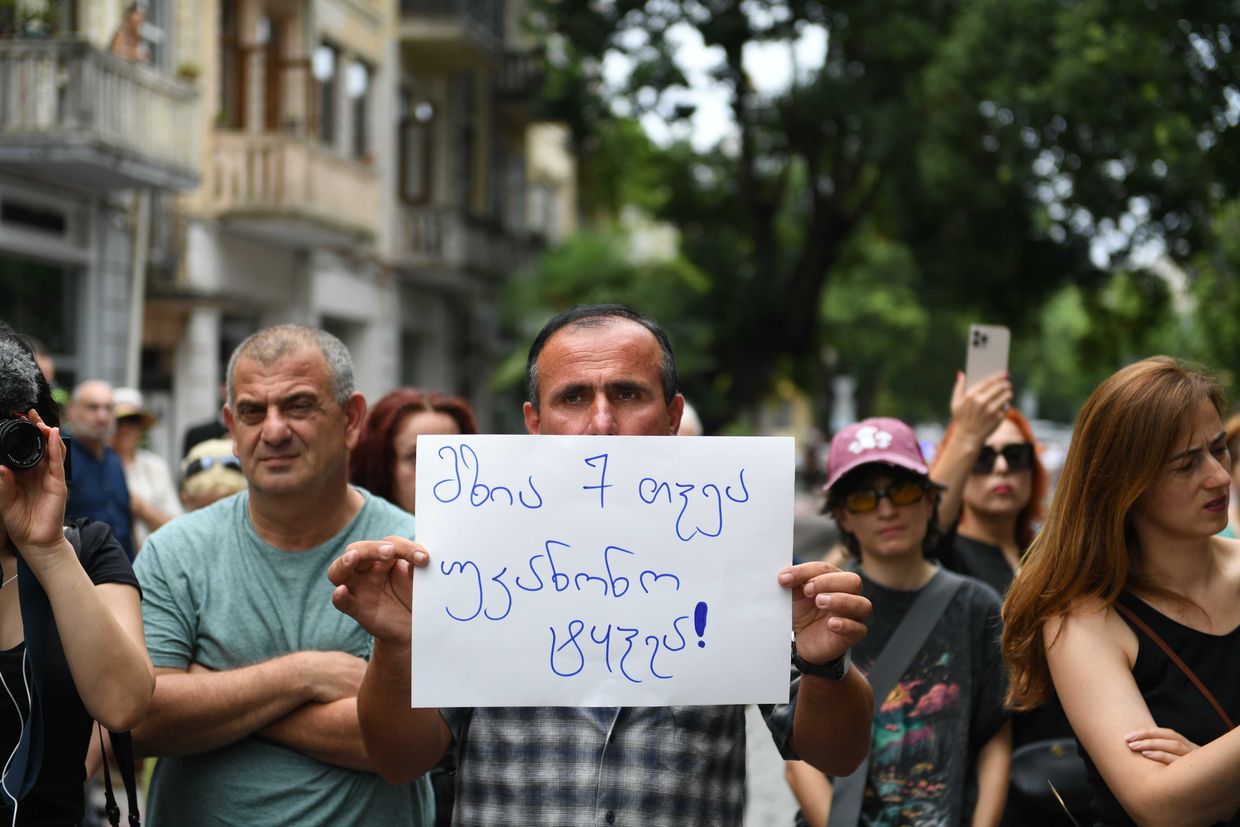
Amaghlobeli also addressed the prosecution’s offer of a plea deal, which would require her to admit guilt in exchange for a reduced sentence. The media founder described such an arrangement as equivalent to her being ‘buried alive’.
‘My lawyers have already made my position clear: that I will not and cannot sign this plea deal for the simple reason that what happened was not an assault. Framing and packaging a slap as an act of violence is an act of malice. What kind of justice is that? I honestly don’t know’.
For the 207 days following the incident, the veteran journalist remained in pre-trial detention, with the court repeatedly accepting the prosecution’s claim that the 50-year-old woman with no prior criminal convictions posed a risk of reoffending.
Amaghlobeli went on a hunger strike for the first 38 days of her detention in protest. Her eyesight, already impaired before her arrest, deteriorated significantly in prison, to the point where, according to her lawyer, she could only distinguish between light and dark in her left eye.
Amaghlobeli was first detained at night on 11 January after putting a sticker calling for a nationwide strike on a fence outside a police station in Batumi. She had done so in protest against the detention of her colleague, Tsiala Katamidze, for putting up the same sticker on the same street.
Shortly after being released, she was again arrested after slapping Batumi Police Chief Irakli Dgebuadze during a heated exchange outside the police station.
Throughout the court proceedings, Amaghlobeli spoke about the circumstances leading up to the incident, including degrading treatment by the police, as well as the abuse she faced following her arrest after slapping the officer. This included being spat in the face by Dgebuadze, subjected to verbal abuse, and being denied access to a toilet.
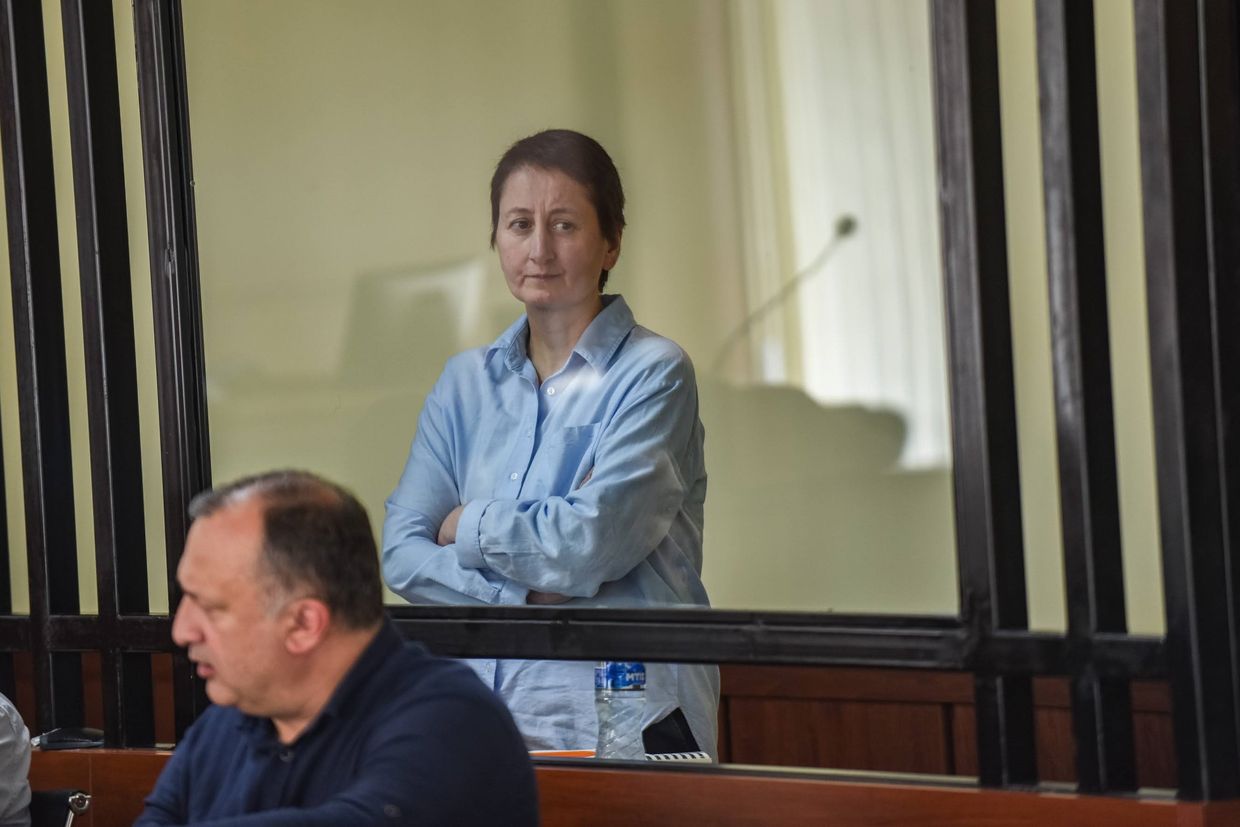
Amaghlobeli’s case has been widely condemned by critics both in Georgia and abroad as politically motivated, linked to her work as a media personality.
Critics also pointed to the video of Amaghlobeli’s arrest following the slapping incident as early evidence that her punishment was premeditated — the footage showed Dgebuadze insulting and threatening her.
‘I fucking swear, I’ll arrest her under the criminal [code] […] I’ll fuck her mother’s pussy’, Dgebuadze could be heard saying.
After the footage was shown during a hearing in May, Dgebuadze stated that the voice in the recording ‘sounds like’ his. He then added that he might have used obscene language, but only for the purpose of ‘describing the fact’. He did not confirm the actions described by Amaghlobeli, including spitting on her.
‘Freedom for Mzia’
Amaghlobeli has been working in journalism for over 25 years. She founded Batumelebi in 2001 together with her friend and colleague Eter Turadze in the coastal city of Batumi. The outlet was established as an independent media organisation focused on reporting human rights violations and official corruption.
In 2010, the founders of Batumelebi went on to launch Netgazeti, a Tbilisi-based news platform. Both outlets have received numerous local and international awards for their work, along with pushback and hostility from those in power.
‘In my generation, I’m one of those in the media who managed to turn their back on sycophantic, propagandistic, Soviet-style journalism’, Amaghlobeli said during one of the hearings. ‘Governments don’t look kindly on critical journalism, but that’s not so dangerous when a country has an independent judiciary’.
For many of those Georgians protesting the ruling Georgian Dream party policies for 250 days since late November, Amaghlobeli has become a symbol of government repression and attacks on the media and civil society.
The media founder’s trial has also drawn significant attention from the government critics and has been closely followed by EU politicians and diplomats. Representatives of European embassies, as well as international human rights and press freedom organisations, have frequently commented on and attended the court hearings.
In a joint statement last week, 14 international press freedom groups, including Reporters Without Borders and the Committee to Protect Journalists, called for an end to Amaghlobeli’s ‘discriminatory and excessive persecution’, demanding her immediate release.
‘Freedom for Mzia’ became the rallying cry of her release campaign, with colleagues and supporters repeatedly working to raise awareness about her case both inside and outside the country.
According to the June survey conducted by Institute of Social Studies and Analysis (ISSA), the local research organisation, the majority of Georgians (59%) found the charges against Amaghlobeli unfair — including 70% in Tbilisi, 54% in the regions, and 22% of Georgian Dream supporters. Among the ruling party’s voters, 23% either had no answer or refused to respond.
A few days before the verdict, several prominent Georgian figures voiced their support for the detained journalist, including veteran singer Nani Bregvadze, 99-year-old renowned linguist Mzekala Shanidze, and footballer Shota Arveladze.
Following the arrest, Georgian Dream officials — including Prime Minister Irakli Kobakhidze — promoted the theory that Amaghlobeli was acting on prior instructions as part of a plan to discredit the Georgian police.
In May, Amaghlobeli’s lawyers announced they would sue the prime minister for defamation over those claims.






